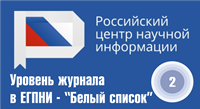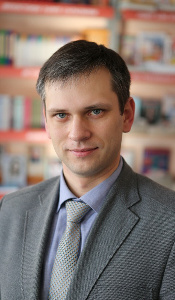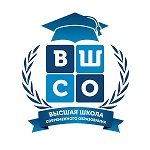ТЕНДЕНЦИИ ЦИФРОВОЙ ТРАНСФОРМАЦИИ ИНОЯЗЫЧНОЙ ПОДГОТОВКИ СТУДЕНТОВ НЕЯЗЫКОВЫХ СПЕЦИАЛЬНОСТЕЙ
Аннотация
Образование относится к сферам человеческой деятельности, которые наиболее подвержены цифровизации. В рамках данной статьи рассматриваются тенденции цифровой трансформации иноязычной подготовки студентов вузов неязыковых специальностей в контексте образования 4.0, включая цифровое пространство, цифровые технологии и направления организации образовательной деятельности. В исследовании использовались лонгитюдные наблюдения, педагогические эксперименты и анализ образовательных данных. Результаты свидетельствуют о том, что использование передовых технологий цифрового обучения способствует активизации взаимодействия преподавателей и студентов в электронной образовательной среде, персонализации образовательного процесса, повышению мотивации к самостоятельной познавательной деятельности студентов, а также формированию широкого спектра компетенций при обучении иностранному языку. Выявлены цифровые технологии в обучении иностранному языку, которые внедряются в образовательный процесс вуза и составляют научно-методическую основу при разработке и использовании всех видов цифровых образовательных ресурсов. Обоснована целесообразность их внедрения в обучение иностранному языку. Одним из наиболее эффективных направлений цифровой трансформации является внедрение технологий виртуальной реальности. Анализ современного использования VR-технологий в электронной образовательной среде вуза показывает положительное влияние погружения на когнитивные функции студентов.
Скачивания
Литература
References
Abdrakhmanova G.I. et al. Digital transformation: Expectations and reality, 2022. URL: https://publications.hse.ru/en/books/617690103?ysclid=lfn00wii96307731479 (accessed 20 January, 2024)
SevSU uses VR technologies in foreign language classes. Sevsu.ru, 2023. URL: https://www.sevsu.ru/novosti/item/14854-v-sevgu-ispolzuyut-vr-tekhnologii-na-zanyatiyakh-po-inostrannomu-yazyku (accessed 20 January, 2024)
Kondrakhina N.G., Yuzhakova N.E. Digital transformation of foreign language education in the optics of key changes and development prospects in modern society. Gumanitarnye nauki. Vestnik Finansovogo universiteta [Humanities. Bulletin of the Financial University], 2021, No. 11(4), pp. 133-138. https://doi.org/10.26794/2226-7867-2021-11-4-133-138.
Semoynkina I.A., Pavlova T.A. The future of higher education formats from the perspective of the teaching community. Pedagogical Review, 2022, no. 4(44), pp. 91-106. https://doi.org/10.23951/2307-6127-2022-4-91-106
Semoynkina I.A., Pavlova T.A. University in the context of a pandemic: the perception of distance and mixed learning format by students and teachers. Mir pedagogiki i psihologii [The World of Pedagogy and Psychology], 2021, no. 4(57), pp. 119-131.
Uvarov A.Yu. On the way to the digital transformation of the school. Moscow: Education and Informatics Publ., 2018, 120 p.
Decree of the President of the Russian Federation "On the Strategy for the development of the Information Society in the Russian Federation for 2017-2030" dated 05.09.2017, no. 203. URL: http://publication.pravo.gov.ru/Document/View/0001201705100002 (accessed 20 January, 2024).
Barzman M. et al. Exploring Digital Transformation in Higher Education and Research via Scenarios Journal of Futures Studies, 2021. URL: https://jfsdigital.org/wp-content/uploads/2021/03/06-Barzman-Exploring-Digital-Transformation-in-Higher-Education-ED-05.pdf (accessed 20 January, 2024).
Divekar R.R. AI enabled foreign language immersion: technology and method to acquire foreign languages with AI in immersive virtual worlds, 2020. URL: https://dspace.rpi.edu/bitstream/handle/20.500.13015/2614/180337_Divekar_rpi_0185E_11747.pdf?sequence=3 (accessed 20 January, 2024).
Essel B.H. et al. The impact of a virtual teaching assistant (chatbot) on students' learning in Ghanaian higher education. International Journal of Educational Technology in Higher Education, 2022, vol. 19, is. 57. https://doi.org/10.1186/s41239-022-00362-6
Fourtané S. Technology Trends in Higher Education, 2023. URL: https://www.fierceeducation.com/technology/technology-trends-higher-education-2023 (accessed 20 January, 2024).
Gokhberg L.M. et al. Education in numbers: 2021: a brief statistical collection. Higher School of Economics University, 2021. URL: https://publications.hse.ru/en/books/503733862?ysclid=lfn0gmpssy845638532 (accessed 20 January, 2024).
Holon IQ. Artificial Intelligence in Education. Survey Insights, 2023. URL: https://www.holoniq.com/notes/artificial-intelligence-in-education-2023-survey-insights (accessed 20 January, 2024).
Holon IQ. Technology Trends in Higher Education 2023. URL: https://www.holoniq.com/notes/2023-higher-education-digital-transformation-survey (accessed 20 January, 2024).
Hwang Gwo-Jen, Chien Shu-Yun Definition, roles, and potential research issues of the metaverse in education: An artificial intelligence perspective. Computers and Education: Artificial Intelligence, 2022. https://doi.org/10.1016/j.caeai.2022.100082
Marks A. et al. Learning Management Systems: a shift Toward Learning and Academic Analytics. International Journal on Emerging Technologies in Learning, 2016. https://doi.org/10.3991/ijet.v11i04.5419
Margaryan T.D., Kalugina L.V. Digital Transformation of English Language Teaching (ELT) at a Technical University: BMSTU Case Study, 2020. URL: https://www.itmconferences.org/articles/itmconf/pdf/2020/05/itmconf_itee2020_01009.pdf (accessed 20 January, 2024).
Florence M., Xie K. Digital Transformation in Higher Education: 7 Areas for Enhancing Digital Learning, 2020. URL: https://er.educause.edu/articles/2022/9/digital-transformation-in-higher-education-7-areas-for-enhancing-digital-learning (accessed 20 January, 2024).
Oliveira K.K.S., Souza R.A.C. Habilitadores da transformação digital em direção à Educação, 2020. https://doi.org/10.22456/1679-1916.106012
Seres L. et al. Digital transformation of higher education: Competing on analytics. Proceedings of INTED2018 Conference, 2018. https://doi.org/10.21125/inted.2018.2348
Vázquez-Cano E. et al. The Negative Effects of Technology on Education: A Bibliometric and Topic Modeling Mapping Analysis (2008-2019). International Journal of Instruction, 2022, vol. 15, no. 2, pp. 37-60. https://doi.org/10.29333/iji.2022.1523a
Vial G. Understanding Digital Transformation: A Review and a Research Agenda. The Journal of Strategic Information Systems, 2019, vol. 28(2), pp. 118-144. https://doi.org/10.1016/j.jsis.2019.01.003
Wilson G. Shaping the Future: Artificial Intelligence and the English Language Teaching Industry. British Council, 2023. URL: https://www.britishcouncil.fr/blog/shaping-future-artificial-intelligence-english-language-teaching (accessed 20 January, 2024).
Zhang Ruofei, Zou Di. Types, purposes, and effectiveness of state-of-the-art technologies for second and foreign language learning. Computer Assisted Language Learning, 2022, vol. 35(4), pp. 696-742. https://doi.org/10.1080/09588221.2020.1744666
Список литературы
Абдрахманова Г.И. и др. Цифровая трансформация: ожидания и реальность: докл. к XXIII Ясинской (Апрельской) междунар. науч. конф. по проблемам развития экономики и общества Нац. исслед. ун-т «Высшая школа экономики». Москва: Изд. дом Высшей школы экономики, 2022. 221 с. URL: https://publications.hse.ru/en/books/617690103?ysclid=lfn00wii96307731479 (дата обращения: 20.01.2024).
В СевГУ используют VR технологии на занятиях по иностранному языку // Sevsu.ru URL: https://www.sevsu.ru/novosti/item/14854-v-sevgu-ispolzuyut-vr-tekhnologii-na-zanyatiyakh-po-inostrannomu-yazyku/ (дата обращения: 20.01.2024).
Кондрахина Н. Г., Южакова Н.Е. Цифровая трансформация иноязычного образования в оптике ключевых изменений и перспектив развития в современном обществе // Гуманитарные науки. Вестник Финансового университета. 2021. № 11(4). С. 133-138. https://doi.org/10.26794/2226-7867-2021-11-4-133-138
Семёнкина И.А., Павлова Т.А. Будущее форматов высшего образования с позиций преподавательского сообщества // Научно-педагогическое обозрение (Pedagogical Review). 2022. № 4(44). С. 91-106. https://doi.org/10.23951/2307-6127-2022-4-91-106
Семёнкина И.А., Павлова Т.А. Вуз в условиях пандемии: восприятие дистанционного и смешанного формата обучения студентами и преподавателями // Мир педагогики и психологии. 2021. № 4(57). С. 119-131.
Уваров А.Ю. На пути к цифровой трансформации школы. М.: Образование и Информатика, 2018. 120 с.
Указ Президента Российской Федерации "О Стратегии развития информационного общества в Российской Федерации на 2017-2030 годы" от 09.05.2017 № 203. URL: http://publication.pravo.gov.ru/Document/View/0001201705100002 (дата обращения: 20.01.2024)
Barzman M., et al. Exploring Digital Transformation in Higher Education and Research via Scenarios // Journal of Futures Studies. 2021. URL: https://jfsdigital.org/wp-content/uploads/2021/03/06-Barzman-Exploring-Digital-Transformation-in-Higher-Education-ED-05.pdf (дата обращения: 20.01.2024).
Divekar R.R. AI enabled foreign language immersion: technology and method to acquire foreign languages with AI in immersive virtual worlds. 2020. URL: https://dspace.rpi.edu/bitstream/handle/20.500.13015/2614/180337_Divekar_rpi_0185E_11747.pdf?sequence=3 (дата обращения: 20.01.2024).
Essel B.H. et al. The impact of a virtual teaching assistant (chatbot) on students' learning in Ghanaian higher education // International Journal of Educational Technology in Higher Education. 2022. Vol. 19, Is. 57. https://doi.org/10.1186/s41239-022-00362-6
Fourtané S. Technology Trends in Higher Education. 2023. URL: https://www.fierceeducation.com/technology/technology-trends-higher-education-2023 (дата обращения: 20.01.2024).
Gokhberg L.M. et al. Education in numbers: 2021: a brief statistical collection // Higher School of Economics University. 2021. URL: https://publications.hse.ru/en/books/503733862?ysclid=lfn0gmpssy845638532 (дата обращения: 20.01.2024).
Holon IQ. Artificial Intelligence in Education. Survey Insights. 2023. URL: https://www.holoniq.com/notes/artificial-intelligence-in-education-2023-survey-insights (дата обращения: 20.01.2024).
Holon IQ. Technology Trends in Higher Education 2023. URL: https://www.holoniq.com/notes/2023-higher-education-digital-transformation-survey (дата обращения: 20.01.2024).
Hwang Gwo-Jen, Chien Shu-Yun. Definition, roles, and potential research issues of the metaverse in education: An artificial intelligence perspective // Computers and Education: Artificial Intelligence. 2022. URL: Hwang Gwo-Jen
Marks A. et al. Learning Management Systems: a shift Toward Learning and Academic Analytics // International Journal on Emerging Technologies in Learning. 2016. https://doi.org/10.3991/ijet.v11i04.5419
Margaryan T. D., Kalugina L. V. Digital Transformation of English Language Teaching (ELT) at a Technical University: BMSTU Case Study. 2020. URL: https://www.itmconferences.org/articles/itmconf/pdf/2020/05/itmconf_itee2020_01009.pdf (дата обращения: 20.01.2024).
Florence M., Xie K. Digital Transformation in Higher Education: 7 Areas for Enhancing Digital Learning. 2022. URL: https://er.educause.edu/articles/2022/9/digital-transformation-in-higher-education-7-areas-for-enhancing-digital-learning (дата обращения: 20.01.2024).
Oliveira K.K.S., Souza R.A.C. Habilitadores da transformação digital em direção à Educação. 2020. https://doi.org/10.22456/1679-1916.106012
Seres L. et al. Digital transformation of higher education: Competing on analytics // Proceedings of INTED2018 Conference. 2018. https://doi.org/10.21125/inted.2018.2348
Vázquez-Cano E. et al. The Negative Effects of Technology on Education: A Bibliometric and Topic Modeling Mapping Analysis (2008-2019) // International Journal of Instruction. 2022. Vol. 15, No. 2. P. 37-60. https://doi.org/10.29333/iji.2022.1523a
Vial G. Understanding Digital Transformation: A Review and a Research Agenda // The Journal of Strategic Information Systems. 2019. Vol. 28(2). P. 118-144. https://doi.org/10.1016/j.jsis.2019.01.003
Wilson G. Shaping the Future: Artificial Intelligence and the English Language Teaching Industry // British Council. 2023. URL: https://www.britishcouncil.fr/blog/shaping-future-artificial-intelligence-english-language-teaching (дата обращения: 20.01.2024).
Zhang Ruofei, Zou Di. Types, purposes, and effectiveness of state-of-the-art technologies for second and foreign language learning // Computer Assisted Language Learning. 2022. Vol. 35(4). P. 696-742. https://doi.org/10.1080/09588221.2020.1744666
Просмотров аннотации: 343
Copyright (c) 2024 Irina A. Semenkina, Tatyana A. Pavlova, Svetlana S. Mirontseva, Dmitry V. Moiseev

Это произведение доступно по лицензии Creative Commons «Attribution-NonCommercial-NoDerivatives» («Атрибуция — Некоммерческое использование — Без производных произведений») 4.0 Всемирная.





































